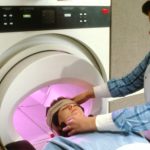 AI has promised much in healthcare for a number of years, but that promise has largely been unrealized, with the sale of Watson Health by IBM earlier this year coming to typify the lack of progress made. A recent study from University College London provides a glimmer of hope, with the AI tool developed by the researchers capable of reducing the time taken to analyze heart MRI scans to just 20 seconds, which means it can be done while the patient is still in the scanner. This comfortably beats the 13 minutes that it would take a doctor to manually assess the images, with this analysis beginning only after the patient has left the scanner.
AI has promised much in healthcare for a number of years, but that promise has largely been unrealized, with the sale of Watson Health by IBM earlier this year coming to typify the lack of progress made. A recent study from University College London provides a glimmer of hope, with the AI tool developed by the researchers capable of reducing the time taken to analyze heart MRI scans to just 20 seconds, which means it can be done while the patient is still in the scanner. This comfortably beats the 13 minutes that it would take a doctor to manually assess the images, with this analysis beginning only after the patient has left the scanner.
This time saving is considerable as around 120,000 such scans are performed each year in the UK. This means that approximately 3,000 clinician days could be saved each year.
“Our new AI reads complex heart scans in record speed, analyzing the structure and function of a patient’s heart with more precision than ever before,” the researchers say. “The beauty of the technology is that it replaces the need for a doctor to spend countless hours analyzing the scans by hand.”
Initial roll-out
Unlike so many technologies in recent years, the tool will be rolled out in a number of hospitals, with the Royal Free Hospital, Barts Heart Centre, and University College London Hospital the first to utilize it, with a further 40 locations both within the UK and further afield set to use the tool by the end of the year.
The tool was trained to accurately measure the size of the left ventricle, as well as the thickness of the heart muscle, and how effectively the left ventricle was pumping blood around the body. The model was trained on heart MRI scans from just under 2,000 people, who between them had seven different heart conditions. It was then tested on over 100 patients, each of whom was scanned twice.
Despite the promising initial results, the tool will continue to be developed, with the researchers explaining that they are also targeting the ability to quantify heart valve disease and even congenital heart defects.
“This is a huge advance for doctors and patients, which is revolutionizing the way we can analyze a person’s heart MRI images to determine if they have heart disease at greater speed,” the researchers explain.
With health systems around the world facing an enormous backlog as a result of the pandemic, the ability to do things more efficiently has tremendous appeal as it can both help to deal with the backlog while also providing faster diagnoses, which will lead to more effective treatment.